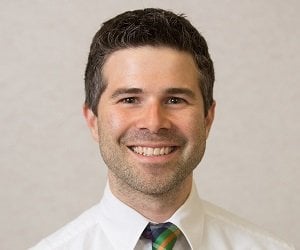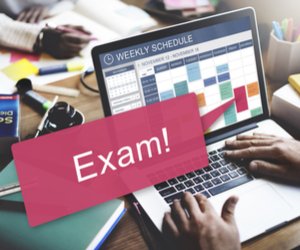
Choosing a Specialty: Taking a Second Look
By Brent Schnipke As I have spoken with physicians, residents, and other medical students about ... Read more
Brent Schnipke
Updated June 26, 2022 by Brent Schnipke
Learn about medicine and how to become a physician in our articles for pre-medical students (including the MCAT), medical students, resident physicians, and practicing physicians.

By Brent Schnipke As I have spoken with physicians, residents, and other medical students about ... Read more
Brent Schnipke
Updated June 26, 2022 by Brent Schnipke

Republished with permission from here. Summer It didn’t take long for the truth to come ... Read more
Amara Frumkin
Updated June 26, 2022 by Amara Frumkin

I walked into my first rotation with a stethoscope and granola bar in my pocket ... Read more
Adelle
Updated June 26, 2022 by Adelle

The only real recollections I have of visiting the hospital before college were once as ... Read more
Nicole Hawkins
Updated June 26, 2022 by Nicole Hawkins

Before giving you some specific strategies to ace Casper scenarios, it’s important to step back ... Read more
Behrouz Moemeni
Updated July 17, 2022 by Behrouz Moemeni

Do you know anyone who raves about their mentor? A mentor can offer you expertise ... Read more
AAMC Staff
Updated June 26, 2022 by AAMC Staff

Dr Femi Oyebode is a Professor of Psychiatry at the University of Birmingham and a ... Read more
Gloria Onwuneme
Updated June 26, 2022 by Gloria Onwuneme

The transition from high school to college is stressful for many students, and perhaps more ... Read more
Cassie Kosarek
Updated June 26, 2022 by Cassie Kosarek

Dr. Shane Quinonez is a Clinical Assistant Professor and the Associate Program Director of the ... Read more
Student Doctor Network
Updated June 26, 2022 by Student Doctor Network

By Amy Rakowczyk, SDN Staff Writer One of the biggest challenges that arises during medical ... Read more
Amy Rakowczyk
Updated June 26, 2022 by Amy Rakowczyk

Shirlene Obuobi draws the life of a medical student in her comic ShirlyWhirl, MD. See ... Read more
Student Doctor Network
Updated August 8, 2022 by Student Doctor Network

Dear medical students: I’m sorry. You had just finished two years of didactic learning and ... Read more
Karen Tran-Harding
Updated June 26, 2022 by Karen Tran-Harding

“So if you don’t mind me asking, why did you make the switch?” I get ... Read more
Karen Tran-Harding
Updated August 23, 2022 by Karen Tran-Harding

Updated February 17, 2022. The article was updated to correct minor grammatical errors and formatting. ... Read more
Guideline Central
Updated June 26, 2022 by Guideline Central

With another busy semester behind you, you might be using your summer to work or ... Read more
AAMC Staff
Updated June 26, 2022 by AAMC Staff

Walking out of the test center after I had completed the MCAT was a surreal ... Read more
Cassie Kosarek
Updated June 26, 2022 by Cassie Kosarek

If your spouse’s medical studies have recently brought you to a new city, or to ... Read more
Amy Rakowczyk
Updated June 26, 2022 by Amy Rakowczyk

Sometimes, Susan Mulroney, PhD, professor and director of the special master’s program at Georgetown Medical ... Read more
Suzanne Barston
Updated June 26, 2022 by Suzanne Barston

Ryan Haynes, PhD and Shiv Gaglani, MBA discuss how they went from anatomy partners ... Read more
Student Doctor Network
Updated March 7, 2019 by Student Doctor Network
Current phase of the application cycle.
You are viewing information for the Early Prep phase of the application timeline.